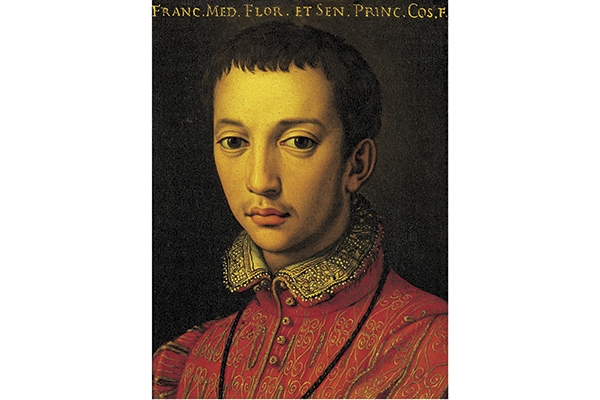Agatha Christie’s spirit must be loving this poisonous new historical entertainment. Eleanor Herman has already enjoyed the success of Sex with Kings and Sex with the Queen, thoroughly researched, gossipy revelations of promiscuity among monarchs and their noble retainers during the Renaissance. She is an American author and broadcaster, born in Baltimore, now living in Virginia, but, at 58, she still concentrates her professional attention on the historic immorality and disastrous vulnerability of western European royalty.
In the Middle Ages, when monarchs commanded virtually absolute power, rivalry for every top job was sufficiently intense to motivate assassination, and the least difficult way to commit it was with poison. As viewed through Herman’s eyes, the age of chivalry was one of ruthless ambition, jealousy and murder. She systematically deromanticises the monarchs, portraying them finally screaming in agony on their soiled deathbeds.
Describing the terminal condition of poison victims, she writes — sometimes overwrites — with clinical precision and scatological excesses. We should not envy 16th-century royalty, she suggests, if we recognise that their ‘most magnificent chambers were befouled by parasites, bacteria, viruses and environmental poison’. Palaces were ‘putrid’, ‘dominions of dung’. ‘Inside those lacquered cabinets were chamber pots brimming with a stinking stew of human waste.’ ‘The castle moat frequently featured floating turds.’
‘To bring you into this world of sublime beauty and wretched filth,’ she promises,
I first investigate the palace poison culture of prevention, protocols and antidotes, followed by chapters on deadly cosmetics, fatal physicians, and the royals’ perilously unhealthy living conditions.
Herman duly recounts 20 case histories of a rich assortment of ill-fated, influential personages, such as Henry VII of Luxembourg, Holy Roman Emperor; Cangrande I della Scala, Italian warlord; Agnès Sorel, mistress of King Charles VII of France; Ivan the Terrible, Tsar of Russia; Grand Duke Francesco I de Medici of Tuscany; Tycho Brahe, Danish astronomer and imperial mathematician; Sir Thomas Overbury, royal adviser at the court of James I, and Napoleon Bonaparte. Their fates all provide mordibly fascinating evidence that, in previous centuries, the higher the status, the likelier the fall.
All Herman’s examples knew they were obvious targets and did their utmost to protect themselves. There was a widespread belief that unicorn horns could magically ‘detect poison in anything nearby, either in food or drink or on garments, paper or furniture’. Being very rare, they were extremely costly, though they were only the tusks of narwhals, found in the Arctic. As Herman observes, ‘sailors were surprised at how many unicorns chose to die on cold northern beaches’. More reliable protection was provided by servile tasters, who sampled all food and drink before offering them to their employers. Poison and antidotes were sometimes tested by ‘gallows guinea pigs’, prisoners condemned to execution, who were given the chance to gamble on an alternative.
Unscrupulous physicians prescribed useless, ‘expensive concoctions’, apothecaries sold them, and they shared the profits. Even honest doctors supplied preposterous treatments to correct a perceived imbalance of the four Hippocratic humours. Medicines containing arsenic and mercury were harmful, of course, and so was the use of ox dung to relieve facial blemishes, as well as rat droppings mixed with honey and onion juice to cure baldness. ‘Physicians recommended those suffering from haemorrhoids to stroke them with the amputated hand of a dead man,’ Herman writes, adding that this is ‘a strangely unpalatable image to ponder’.
After accounts of historic poisonings, there are modern postmortems. Advanced techniques, especially assisted by the analysis of DNA, are often accepted as conclusive. Herman appears disappointed by, if not downright suspicious of, the House of Windsor’s opposition to ancestral exhumations for scientific study, complaining:
Queen Elizabeth II, bolstered in her stance by the Church of England, steadfastly refuses to disinter her ancestors. Because the British monarchy is based on the royal bloodline, it faces a dilemma when it comes to studying royal remains. What if DNA proves that a dead king was not related to his father? Would that mean Elizabeth II was not the legitimate queen?
It is a relief to go on to Herman’s appendices on Russia’s uses of poison to murder Lenin and Stalin — and, more recently, dissidents at home and abroad. Poison nowadays has been democratised: Christie’s fictionally favourite poison, cyanide, is more convenient, cheaper and faster than divorce.






Comments